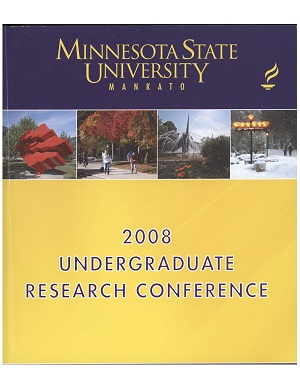The Effect of On-line Training in Teams
Location
CSU 202
Start Date
22-4-2008 8:30 AM
End Date
22-4-2008 10:30 AM
Student's Major
Psychology
Student's College
Social and Behavioral Sciences
Mentor's Name
Andrea Lassiter
Mentor's Department
Psychology
Mentor's College
Social and Behavioral Sciences
Description
Many organizations recognize the importance of utilizing teams to accomplish work (Chuboda, Wynn, Lu, & Watson-Manheim, 2005; Devine, Clayton, Philips, Deunford; & Melner, 1999; Ilgen, 1999; Martins, Gilson, & Maynard, 2004). As technology has advanced, many of these organizations have recently become more reliant on virtual project work, which allows work teams to communicate across geographical distances (Driskell, Radtke, & Salas, 2003). Considering the growing prevalence of virtual teams in organizations, more needs to be known about how to facilitate virtual team effectiveness. In addition, the increased use of teams in organizations has identified and created the need for team training (Ilgen, 1999). Creating a training environment where the appropriate knowledge and skills transfer to a team should be taken into consideration for team performance (Marks, Mathieu, & Zaccaro, 2001 ). However, the literature provides inconclusive evidence on the effectiveness of the virtual team's training environment. The goal of the current study is to add to existing knowledge regarding training and virtual teams. It is expected, based on previous research, virtual teams who receive online training will yield the best performance results, while virtual teams who receive in-person training will yield the worst performance results. Sixty-four undergraduate students from Minnesota State University, Mankato participated in the study. Participants were placed in two-person teams and were trained either on-line using web-based conferencing software or were trained in-person. Team members collaborated either virtually or face-to-face. Results of the research will be discussed along with implications and future directions.
The Effect of On-line Training in Teams
CSU 202
Many organizations recognize the importance of utilizing teams to accomplish work (Chuboda, Wynn, Lu, & Watson-Manheim, 2005; Devine, Clayton, Philips, Deunford; & Melner, 1999; Ilgen, 1999; Martins, Gilson, & Maynard, 2004). As technology has advanced, many of these organizations have recently become more reliant on virtual project work, which allows work teams to communicate across geographical distances (Driskell, Radtke, & Salas, 2003). Considering the growing prevalence of virtual teams in organizations, more needs to be known about how to facilitate virtual team effectiveness. In addition, the increased use of teams in organizations has identified and created the need for team training (Ilgen, 1999). Creating a training environment where the appropriate knowledge and skills transfer to a team should be taken into consideration for team performance (Marks, Mathieu, & Zaccaro, 2001 ). However, the literature provides inconclusive evidence on the effectiveness of the virtual team's training environment. The goal of the current study is to add to existing knowledge regarding training and virtual teams. It is expected, based on previous research, virtual teams who receive online training will yield the best performance results, while virtual teams who receive in-person training will yield the worst performance results. Sixty-four undergraduate students from Minnesota State University, Mankato participated in the study. Participants were placed in two-person teams and were trained either on-line using web-based conferencing software or were trained in-person. Team members collaborated either virtually or face-to-face. Results of the research will be discussed along with implications and future directions.
Recommended Citation
Becker, Ariel B.. "The Effect of On-line Training in Teams." Undergraduate Research Symposium, Mankato, MN, April 22, 2008.
https://cornerstone.lib.mnsu.edu/urs/2008/oral-session-09/2




